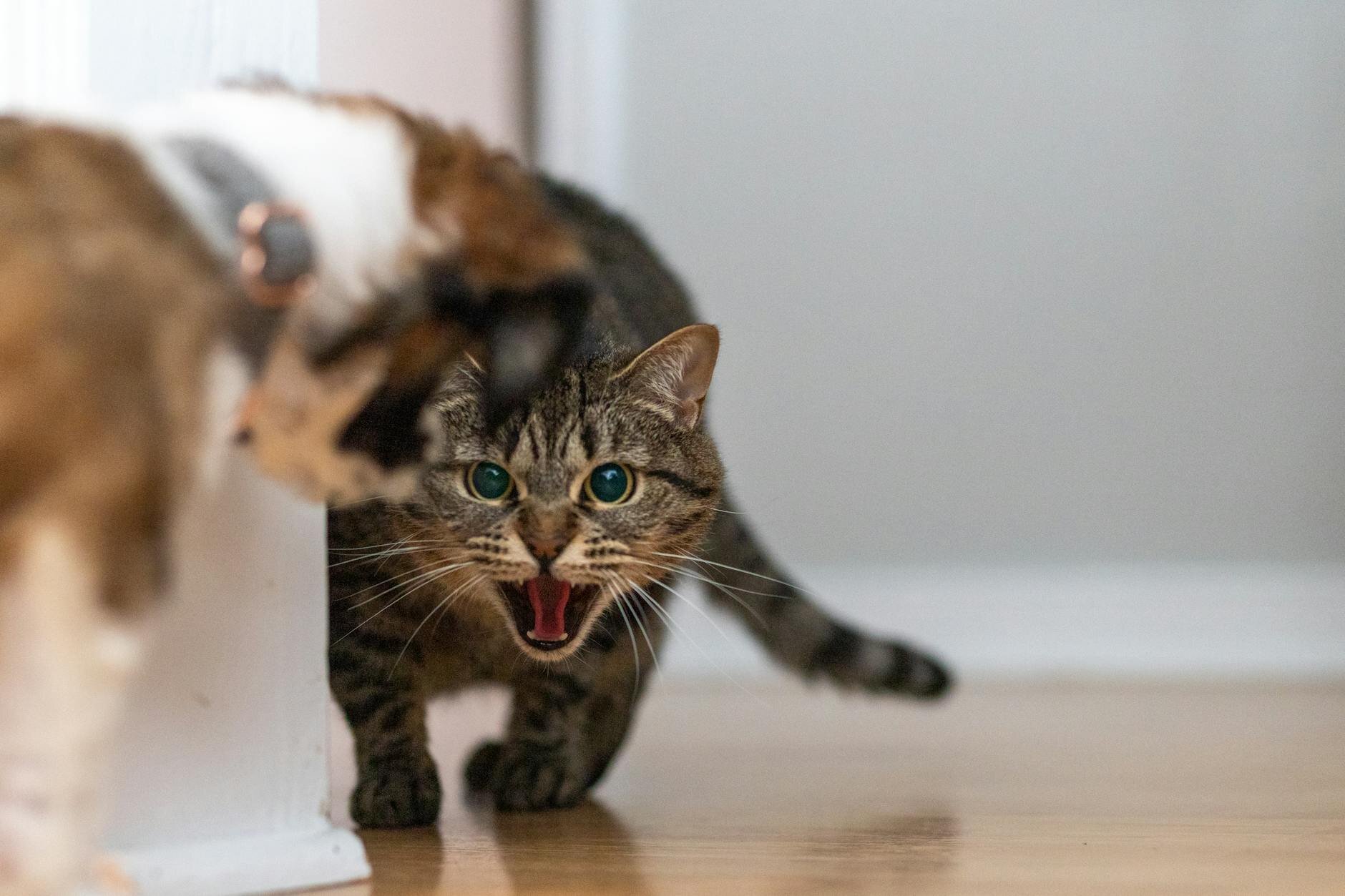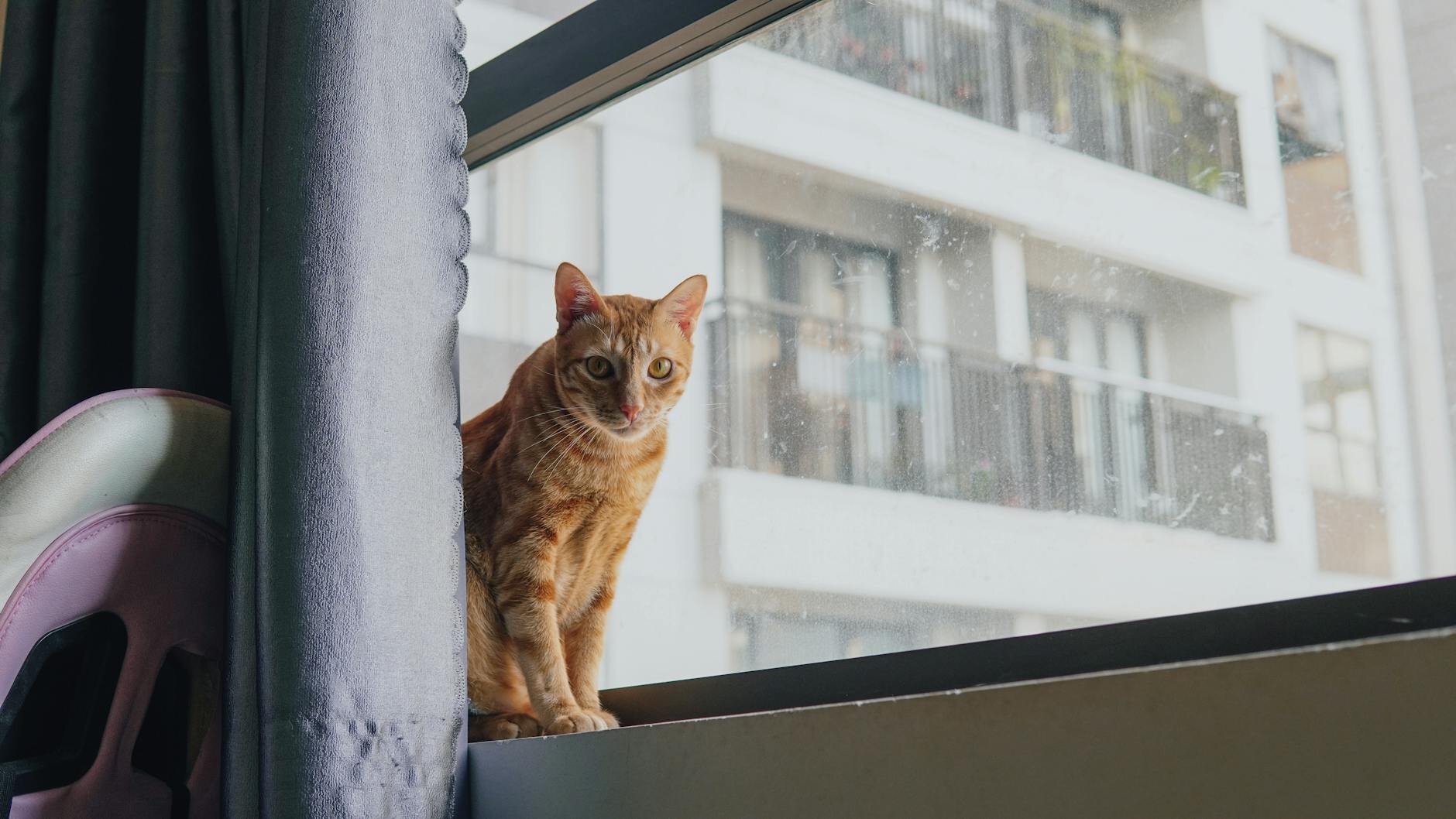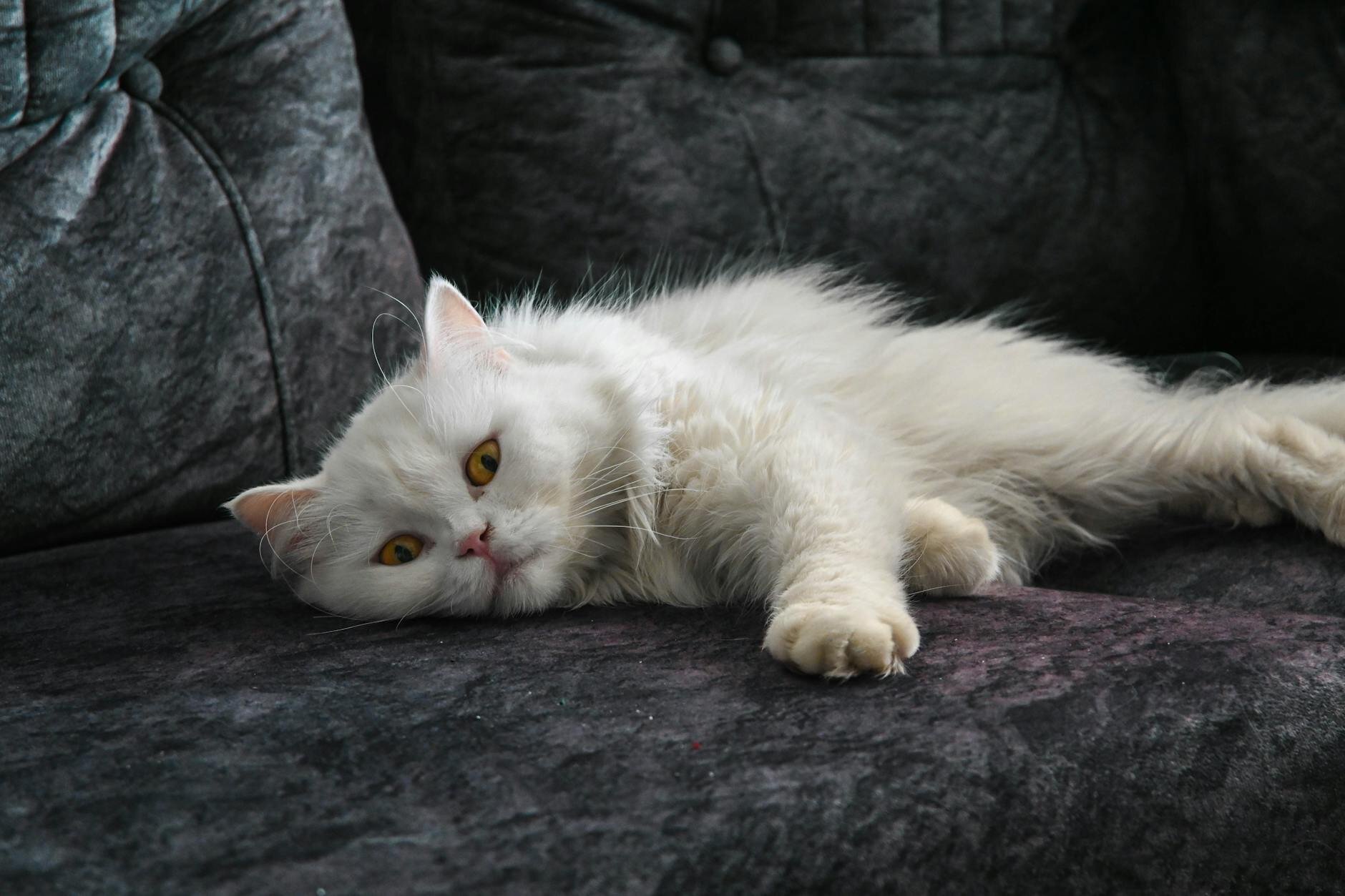Last Updated: 01/07/2025
Stress and Anxiety in Cats
Is your cat stressed or anxious? Learn the common signs, causes, and treatments available to help manage and relieve your feline friend's anxiety.
Author: Dr Carla Paszkowski BVSc (Hons)
Reading Time: 22 minutes - medium read
Understanding feline anxiety is key to a happy cat. As creatures of habit, cats are highly susceptible to stress, but their symptoms are often subtle and easily misinterpreted. They are adept at masking their feelings, meaning almost any problematic behaviour can be caused or worsened by underlying anxiety.
Learning to recognise the signs is the first step toward helping your companion feel secure and content.
Signs of Stress in Cats

Common signs of stress observed in cats include urinary issues such as cystitis or urine spraying, aggression, excessive vocalising, hiding, destructive behaviours such as inappropriate scratching, over-grooming and hair loss, humping, and reduced appetite.
Stress is often the underlying root cause of issues such as skin infections, urinary disease, and gastrointestinal illnesses.
Read more about How to Prevent Urinary Issues in Cats or The Causes of Itching in Cats.
What Causes Stress in Cats?

Sometimes it's hard to know what could be causing stress in your feline friend. Cats are complex creatures and find certain situations a lot more stressful than other animals do. For example, while dogs may be easily adaptable to change, cats often find changes to the home territory incredibly jarring. Or, while dogs enjoy meeting new dog friends, cats may find wandering neighborhood cats incredibly frightening.
It's important to know that every cat has a different stress threshold. What stresses one cat out might not phase another cat. One cats may suffer from a full blown bout of cystitis after a vet visit, while another might be completely unphased and even enjoy an outing.
There are a number of common 'red flag' situations that frequently lead to stress and anxiety in cats:
- Moving House
- A new pet or family member
- Visitors to the house
- Changes to the home territory, such as building works or renovations
- Outings and car trips, such as to the groomer or vet
How to Reduce Stress in Cats

There are many natural, non-medicated approaches to helping your cat deal with stress and anxiety. Depending on the severity of your cat's anxiety, you may be able to come to a complete resolution without having to resort to medicating. However, if your cat fails to improve or is causing themselves or others harm, we recommend chatting to your vet about options.
Provide hiding spots and high escapes
Make sure your cat never feels trapped, and that they have plenty of hiding places. This is particularly important if the cause of your cat's anxiety is children or other pets.
Try to provide different levels. Sometimes cats feel safest when they are up high and can survey their surroundings. Cat trees and scractchers is an easy way to achieve this. Cat trees often provide a variety levels as well as bonus scratching surfaces.
Hideaways and cat cave beds are a great way to help your cat establish a safe space. Igloo or pod type beds are a great way to give your feline friend a snuggly little hidey-hole.
Recommended cat furniture
Feliway
Feliway is a synthetic analogue of the feline 'calm' pheromone. Cats release this pheromone when they rub their cheeks against objects as a way of marking their territory. Feliway is available as a spray and a diffuser. The plug-in diffuser is ideal for home situations, as it works like an air freshener by dispensing appeasing pheromone into the atmosphere. The spray is good for travelling purposes and can be spritzed onto your cat's carrier or in the car.
Feliway comes highly recommended by both vets and pet owners. Most people find that Feliway works incredibly well to reduce stress and put their cats at ease. Vet clinics all over the world use Feliway in-house to help calm feline patients.
Feliway can help with almost any behaviour issue, and it has no side effects - so we always recommend giving it a go!
Make Sure their Litter is 'Up To Scratch'
Always ensure you have enough litter trays, and that they are kept clean. Cats need to feel they have a clean toilet space all to themselves. They can become very stressed if they have to share with a dominant cat, or if their litter tray is soiled. Some cats are more particular about their privacy when they are going about their business, and may prefer a hooded litter box.
How many litter trays is 'enough'? A good rule of thumb is to provide one litter tray per cat, and then one extra. So, for a 1-cat household, provide 2 litter trays. For a 3-cat household, provide 4 litter trays (and so on).
Recommended litter and accessories
Anxiety Diets, Supplements and Medications
There are a number of diets and supplements containing anxiety relieving ingredients, such as casein and L-tryptophan. Casein is a protein found in milk and is known for it's calming effect on newborns. L-tryptophan is the precursor to serotonin, a neurotransmitter that affects mood and decreases anxiety. Serotonin is known as 'the happy hormone'. There are a number of products for cats that contain Casein and / or L-tryptophan:
Anxiety Diets
Royal Canin Veterinary Calm and Hills Prescription Diet Multicare Urinary Stress contain hydrolysed casein, as well as L-tryptophan. The Hills diet also has the added benefit of supporting urinary tract health and preventing urinary crystals, and the Hills Metabolic Plus Urinary Stress formula is also available for weight management. The Royal Canin Calm is available as a dry diet, and the Hills varieties are available as both wet and dry kibble. As they are veterinary diets we recommend checking with your vet before ordering.
Anxiety Supplements
Anxiety supplements offer a valuable solution for managing stress in cats, utilising key ingredients to naturally soothe them. These products often contain Casein, a protein derivative from milk that helps promote a sense of calm and relaxation. Alternatively, supplements may feature L-tryptophan, an essential amino acid that aids in the production of serotonin, a natural mood stabiliser. By leveraging these components, these supplements work with your cat's biochemistry to effectively reduce anxiety and improve their overall well-being.
Anxiety Medications
If you've had no success with Feliway, a diet change, and home modifications, it may be time to talk to your vet about medications. Your vet may discuss treatment with clomipramine for chronic anxiety, which is very effective and has few side effects.
In conclusion, tackling stress and anxiety in your feline friend requires a patient and observant approach. From recognising subtle signs like over-grooming to identifying triggers such as a new pet or changes in the home, understanding your cat's perspective is the crucial first step.
Fortunately, a wide range of solutions is available, starting with simple environmental adjustments like providing safe hiding spots and ensuring pristine litter box conditions. For more persistent anxiety, products like Feliway diffusers, specialised calming diets, and supplements containing Casein or L-tryptophan can offer significant relief.
Ultimately, finding the right combination of strategies is key, and for severe cases or when you're unsure where to begin, consulting your veterinarian or our Vet Squad is always the best course of action to create a peaceful and secure environment for your beloved cat.
Further Reading
Want to read more? Check out our other articles:
How to Prevent Urinary Issues in Cats
Tips to Keep Your Indoor Cat Happy
History
Our experts continually monitor the health and wellness space and we update our articles when new information becomes available.
Wed 2 July 2025
Edited by Dr Gillian Hill BVSc (Hons)Dr Carla Paszkowski BVSc (Hons)
Veterinarian
Dr. Carla graduated from the University of Queensland in 2013 with a Bachelor of Veterinary Science and worked for a number of years in small animal clinics across South East Queensland. While Carla enjoys most facets of clinical veterinary work, she holds a special passion for feline medicine, pocket pets, and nutrition.

